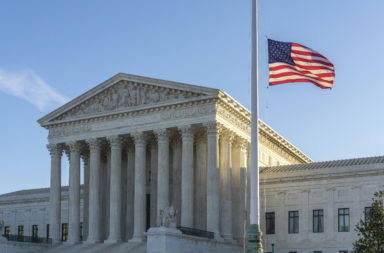The new president today pushed forward with plans to investigate what he believes was “major” voter fraud during the election. Yet with victory achieved, no evidence to back-up his claims, and bipartisan condemnation of his remarks, it begs the question – what does he hope to achieve? It is becoming increasingly possible that the leader of the free world is rankled by the ignominy of losing the popular vote.
- Trump’s team stands by their man
- Both sides of the aisle express incredulity
- Why would Trump choose to pursue the baseless accusations?
“I will be asking for a major investigation into VOTER FRAUD, including those registered to vote in two states, those who are illegal and … even, those registered to vote who are dead (and many for a long time). Depending on results, we will strengthen up voting procedures!” he tweeted.
The president’s Press Secretary, Sean Spicer, was sent out to back Trump’s statement. Having had to endure a tempestuous first week in the job, battling the media about numerous falsehoods uttered by the president and his team, it’s unlikely that it was a job he relished.
“The president does believe that,” he said. “He has stated that before. I think he stated his concerns of voter fraud and people voting illegally during the campaign and he continues to maintain that belief based on studies and evidence that people have presented him.”
The claim has been traced back to a tweet by a Republican party official released in the aftermath of the election. On the 12th of November, Gregg Phillips affirmed to have discovered “more than three million votes cast by non-citizens”. He has failed to provide any evidence to back up his claims.
Bipartisan Resistance to Claims
The Democratic response to Trump’s statement was expectedly dismissive. House Minority Leader Nancy Pelosi said she “felt sorry” for the president. “For a person who is newly elected president of the United States to be so insecure … to suggest and to undermine the integrity of our voting system, is really strange.”
The reaction is mounting and an attempt to prove Trump’s claims wrong has begun. Three members of the House Democrats sending a letter to officials in each state and to Washington D.C., calling for a cases of voting fraud in the election to be made public.
One of the trio, Rep. Elijah Cummings, ranking Democrat on the House Committee on Oversight and Government Reform had this to say: “The president can join me and my staff, and we will show him that there is no voter fraud,” Cummings continued. “The thing I do want him to do, I want him to investigate, are all of the people who don’t get the chance to vote, who have been denied the right to vote.”
Republican Speaker of House Paul Ryan was questioned on the claims and responded “I’ve seen no evidence to that effect, and I’ve made that very, very clear.” Senate GOP Conference Chairman John Thune echoed his sentiments – “All I can tell you is that we had an election. There was a decisive outcome. We have a new president, a new Congress,” Thune continued. “I view the election as history and we’re ready to roll up our sleeves and go to work for the American people.”
Sinister Intentions?
While it is now common knowledge that Trump does not take criticism well, it still stretches the limitations of the mind to believe he would seek to investigate his own victorious election. Yet the nationwide, indeed global, protests that took place in the aftermath of his inauguration appear to have instilled a siege mentality in his administration.
However, Trump’s focus on the popular vote and the unsubstantiated claims have caused consternation in some Republicans who believe it’s taken the party off message and is distracting them from serious policy issues, such as ObamaCare and the economy.
Some commentators are posing a potential ulterior motive. The stronger voting procedures that Trump is proposing historically mean voter ID laws aimed at in-person voting fraud. These policies have been found to disproportionately affect the poor, the elderly and people of color. These groups all typically identify more strongly with the Democratic party.
Indeed, it was found that voter ID laws in Kansas and Tennessee reduced the total vote in those states in 2012 by 100,000 votes. The study from the non-partisan Government Accountability Office also found that the most affected were young people, black people and newly registered voters.
Trump’s aversion to criticism must without doubt be taken into account with all of his statements and tweets. The voter fraud claims are a prime example of this. However, the need to look at the potential long term consequences of his actions without his personality clouding the debate is something voters of all creeds will need to get accustomed to.





